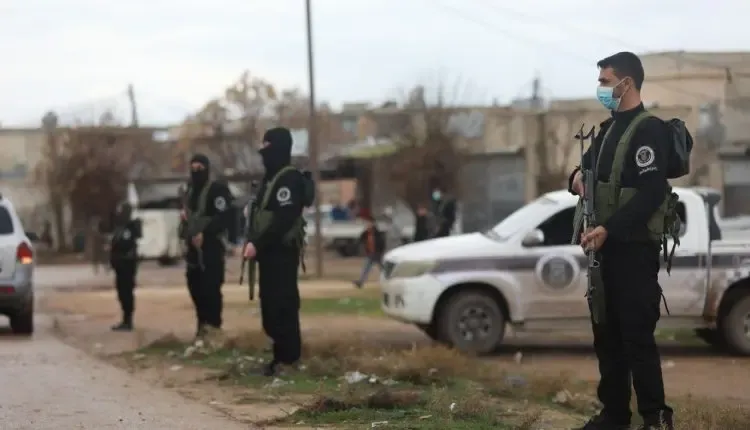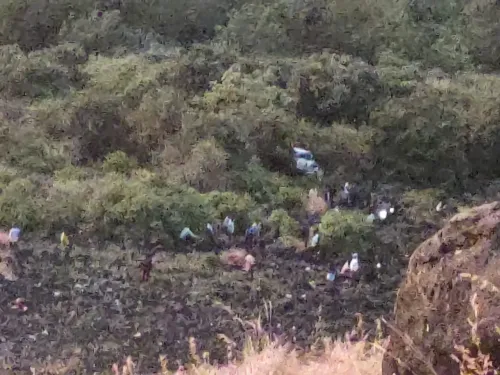Syria's Interim Government Utilizes Helicopters Against 'Former Regime Elements' in Coastal Areas

Damascus, Dec 29 (NationPress) Military forces from Syria's interim government have initiated the deployment of attack helicopters against what they refer to as remnants of the former regime in the nation's coastal regions, according to media reports.
The helicopters are launching missions from Istamo Airfield in rural Latakia, focusing on armed groups that remain active in the coastal countryside, as stated by the administration's announcement, which did not specify the number of helicopters involved or the operation's extent.
This deployment is part of a broader series of security measures across the country, aimed at reinforcing the newly established leadership's authority, as reported by Xinhua news agency.
On Saturday, Syria's newly appointed intelligence chief, Anas Khattab, made an official statement committing to reorganizing the country's security structure "in a way that honors our people's sacrifices and rich heritage".
Khattab indicated that all current security branches in Syria would be dissolved and restructured, although he did not provide a timeline or detailed plan for this overhaul.
This announcement comes during a delicate political transition in Syria following the previous government's collapse on December 8.
A military coalition led by Hayat Tahrir al-Sham launched a significant operation from northern Syria on November 27, advancing southward, capturing Damascus, and overthrowing former President Bashar al-Assad's administration within 12 days.
The Syrian Information Ministry has instituted a ban on what it termed "the dissemination or publication of any media content or news with a sectarian tone aimed at creating division" among Syrians.
The Syrian civil war has taken on sectarian aspects as Assad has relied on Shia militias from across the Middle East, mobilized by his ally Iran, to combat an insurgency largely composed of the Sunni Muslim majority, many of whom are Islamists.
Dissent has also emerged in the city of Homs, located 150 km (90 miles) north of Damascus.
State media reported that police enforced an overnight curfew on Wednesday night following unrest linked to protests allegedly led by members of the Alawite and Shia communities.
Video footage shared on social media from Homs on Wednesday showed individuals fleeing as gunfire was heard in the background.
Iran, a long-time Shia ally of Assad, has expressed criticism regarding recent developments in Syria.
On Sunday, Iranian Supreme Leader Ayatollah Ali Khamenei urged Syrian youth to "stand resolute against those who have orchestrated and caused this insecurity".
Khamenei predicted that "a strong and honorable group will also emerge in Syria because today Syrian youth have nothing to lose", highlighting the country's current instability.
Syria's newly appointed Foreign Minister, Asaad Hassan al-Shibani, stated in a social media update on Tuesday that Iran must respect the desires of the Syrian people as well as Syria's sovereignty and security.
"We caution against any attempts to incite chaos in Syria and hold them responsible for the consequences of recent statements," he asserted.
Lebanon expressed on Thursday its eagerness to establish strong neighborly relations with Syria, marking its first official communication with the new administration in Damascus.
Hezbollah, backed by Iran, played a crucial role in supporting Assad during the civil war before its fighters were redeployed to Lebanon over the past year to engage in a challenging conflict with Israel—this shift has weakened the Syrian government's defensive lines.










